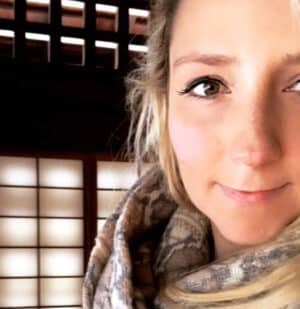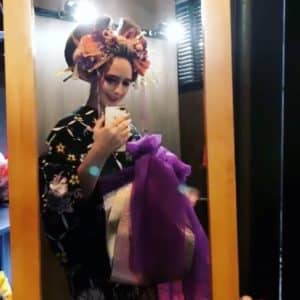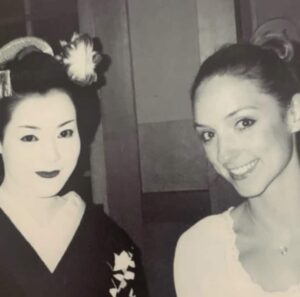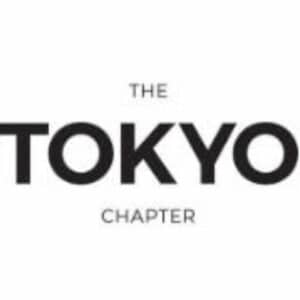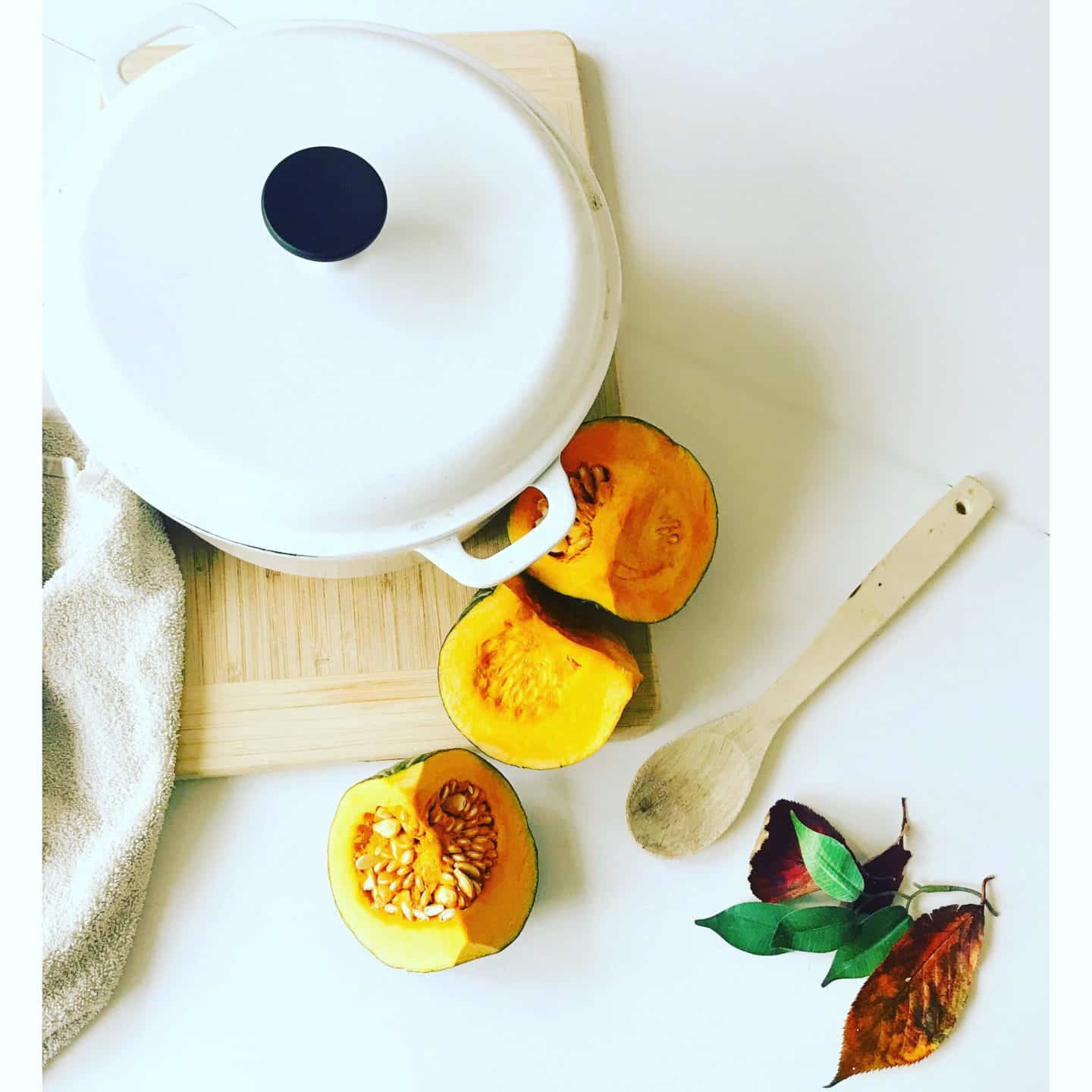
I’ve had lots of questions about this over the past few years so rather than give all my suggestions in DMs I also thought I would put my advice on travelling to Japan with a child who has severe food allergies here.
Please take note: I am not a medical professional. Please make sure you do your own research – be aware of how the medical system in Japan works if you do need urgent medical care.
Please also ask and ask restaurants and cafes ahead of time as much as possible and then check again before your child consumes anything. This article is purely giving advice and I’m not able to give you a 100% guarantee that any food item is 100% safe for your child to consume so please check and re-check as much as you can.
Do I know many many Mums and Dads who travel often to Japan or live in Japan while looking after a child who has severe allergies?
Absolutely yes – and I do have many suggestions and tips on how to make it work.
And I don’t want to deter anyone but I also don’t want to give anyone the impression that it will be really, really easy or anything.
It will be difficult and you won’t be able to just “pop in somewhere for lunch” etc.
You will need to be prepared, organized and that includes:
-having forms filled in ahead of time
-bringing translated allergen cards with you (this is a great tool but you CANNOT rely on this tool alone – most places won’t be able to help you and it also leaves room for error)
-emailing hotels and eateries weeks ahead of time
-bringing back up medication (bring extra incase you are delayed or needed to change plans for illness etc. Always bring medication in it’s original packaging and bring a doctor’s letter and the original prescription too.)
-applying for permission to take that medication into Japan (not during this correctly could result in time in a Japanese jail– some items that seem common sense to you or are over the counter meds in your home country can still be illegal in Japan) and you will also need excellent travel insurance in case something goes wrong.
Why is it more difficult to travel in Japan with allergies than in some other countries?
1. Because of the language barrier. Any parent knows that, even when speaking the same language as someone in a restaurant or a food manufacturing facility, there can be misunderstandings and confusion. So communicating in a new language (or with someone else who is learning a new language) leaves more room for error – and error in these scenarios can be dangerous.
2.Because Japan doesn’t take part in “custom-made order “culture in restaurants.
It is very unusual for restaurant or cafe customers to order a menu item but ask for something “without the cheese” or request to “switch the tuna for chicken.”
I should write a whole article on why this is and how it’s just not the done / common thing but… for now…. my short explanation is a) Japanese people are more trusting that the chef has put certain ingredients together for a reason b) I also think this is down to not wanting to make a fuss or make things more difficult for the staff and the wait time longer for other customers ( google collectivist vs individualistic cultures and you can start your deep dive from there if it interests you.).
There is a fantastic article I also recommend reading on a blog called Japan Intercultural Consulting called “Avoiding gluten and dairy in Japan – handling it practically and culturally” which I think will interest many readers here – she gives practical tips but also explains why the cultural side of living in Japan can add an additional layer of difficulty for some Japanese people.
3. Because familiar products at home may not be available or served differently (or prepared differently.)
HERE ARE MY RECOMMENDATIONS FOR PREPARING FOR TRAVEL IN JAPAN WITH A CHILD WHO HAS SEVERE ALLERGIES
1. Speak with your doctor at home.
Get their thoughts and hear about other patients doing something similar in Japan. Do they think it’s the right time for you to travel? Ask them to provide a letter in plain english (less words is best) with your diagnosis, symptoms and treatment in bold.
2. If you will be bringing medicine from your home country to Japan- make sure it is allowed in to Japan and see if you need a “Yunyu Kakunin-sho” ( a kind of permission slip to bring certain medication into Japan. Here is the link to the Ministry of Health, Labour and Welfare of Japan website where you can start all of your research.
So where to start my research on what medication is and isn’t allowed in Japan?
–The Ministry of Health, Wealth and Labour of Japan website
–The Narcotics Department website Japan page
–The Japan Travel: Bringing Medicines into Japan page
–The Smart Traveller website
*I thought most people would know this already but I did have to explain to someone recently that you CANNOT bring cannabis oil into Japan. So if it says THC on it – it’s automatically a hard no. Cannabis/Marijuana/Hemp are all illegal in Japan – in any form (including gummies, oil, cookies.) Opioids, adderall and epinephrine are illegal in Japan as well.
3. Get really good travel insurance.
Remember this also will cover you from the moment you buy your flights and accommodation so that if anything happens between now and departure day – you are also covered.
If you have an episode – for example – a peanut allergy episode while in Japan, you may need time in hospital and the last thing that you want is to worry about how much the bill will be at the end when you just need to think about seeking urgent care.
*side note on peanut allergies in Japan. Peanuts and hazelnutws are not often used in Japanese cooking – you still need to, of course, ask. Please note that peanuts are used a bit more often in Okinawan cuisine. When eating out in Japan, and eating Chinese or foods from other parts of Asia – please check and check and check – even about the oil as peanut oil can also be used.
4. Know what to do in a medical emergency in Japan.
I wrote this article here that explains what to do in a medical emergency from a Mum in Japan’s perspective. Other resources you might like to read are Japan Living Guide and I also recommend going to food allergy.org and downloading their Japan Travel Tips PDF (sorry – it won’t let me link to it.)
5. Start thinking about the best accommodation for you
For me – I would go with one of the following options :
An apartment hotel like Mimaru with a kitchenette where you can cook and prepare your own meals. This brand of apartment hotel is also very good as they have an English Speaking 24 hour reception desk and can, therefore, support you if you need any assistance.
OR
A big global brand of hotel like a Hilton or a Hyatt. Then you can explain your dietary requirments in advance and already know right away what hotel restaurant options are there for you (room service etc included.) A big hotel like this will also have an English Speaking 24 hour reception desk and can, therefore, support you if you need any assistance.
6. Take lots and lots of familiar (aka “safe”) snacks.
I actually recommend this in general for all families traveling to Japan with children anyway as kids sometimes need a break from new foods anyway.
But, in this instance, it’s even more important. Of course, you can’t bring fresh produce or meat etc but you can bring freeze dried meals and snacks and even tinned soups etc.
A friend of mine even bought a cheap toasted sandwich maker at a home electrical goods store on the first day of their holiday in Japan to use in their apartment to avoid any worries about cross contamination.
7. If your allergies involve dairy or eggs – then I strongly recommend going to strictly vegan restaurants only when eating out.
The Happy Cow app offers significantly less options than places like Australia but it is very reliable and will show you what your options are in the areas you’ll be in for certain days. Strict vegan meals may not be what you eat at home – but if it’s eliminating risk? Do it.
8. If you must eat Gluten Free then I can’t recommend a Facebook group called Gluten Free Japan enough.
This is an incredible resource for those visiting and living in Japan. There is also an amazing resource written by Fukuoka Eats – it is “The Ultimate Gluten Free Survival Guide for Traveling in Japan.”
9. While researching, look for Low Allergen menu options (especially for kids meals)
Of course this depends what kind of ingredients you are allergic to but, if the item you or your child can’t eat are included in the low allergen menu options you maybe be able to rely on that more when out and about. This is especially handy if you find that a chain of restaurants have a meal you or your child can eat and then you can google if there is one in the area – every time you head out. For example, Cocoichi Curry does this, Royal Host, Gusto, Cocos, Denny’s Japan*, Joyful, TonDen as well as Tokyo Disney Resort and Universal Studios Japan.
The Soup chain store “Soup Stock” also now stock gluten free and
*Denny’s not have a “zero meat” plant based burger – but it does contain milk and egg.
Sushi train chain Kurasushi have a list of all of their food with common allergens here.
Did you know there is a restaurant called Gluten Free T’s in Roppongi and another restaurant in Ueno? (click on “Roppongi” and “Ueno” in that sentence to go to the area guide with restaurant opening times and addresses etc.) As the name suggests, these restaurants are gluten free. They also have vegan and vegetarian options. They also offer options such as egg-free, soy-free and dairy free meals. The Ueno branch also serves breakfast and you can have it delivered to you via ubereats.
Roppongi is fabulous for families – whether you stay or visit. Here are my recommendations for places to stay with kids in Roppongi.
10. If you are allergic to certain types of washing powder/laundry liquids
Please bring from home but ALSO please email your accommodation to ask if it is possible to put your own washing detergent into the machine while doing laundry in Japan. Many hotel laundries have inbuilt liquid/powder so you will need to check. I know that Section L hotels allow you to put your own in the machine as well as some airbnbs but you will need to email and check every place you stay.
11. If your allergy requires purchasing special ingredients or requires a bit of an explanation in English – stay in Tokyo first.
Tokyo is, in general, the most international and English friendly spot in Japan.
That means that it is easier to find supermarkets with allergen free sections or options such as lactose-free milk in Japan – while in a big city like Tokyo.
It also means that you are more likely to come across a store clerk or wait staff who speak enough English to explain what you can and can’t have. In short, Tokyo is an easier place for a “practice run” and then.. for the rest of the trip you will know what you’re looking for.
If you would like to have vegan products including different types of milk and gluten free and vegan options delivered anywhere in Japan, I recommend going to the National Azabu website. This international supermarket is located in Hiroo, Tokyo (you can also, of course, visit in person). You can also order online and have them deliver groceries to you if you are staying in Minato-ku, Tokyo (aka the Minato ward, Tokyo) OR you can have these items delivered anywhere in Japan using the Yamato delivery service (price is from 1200 yen per box of food delivered.) This is one of many reasons to stay at a hotel and not an airbnb in Japan – so that a hotel can accept parcels on your behalf -if you’re super clever, you can order ahead and have a box of low-allergen foods for you arrive the day you check in to your hotel (if you email the hotel ahead – they will put cold items in the fridge for you.) National Azabu in Tokyo stocks almond milk, oat milk, walnut milk, soy milk as well as pistachio milk. Here is my general advice on buying different types of milk in Japan.
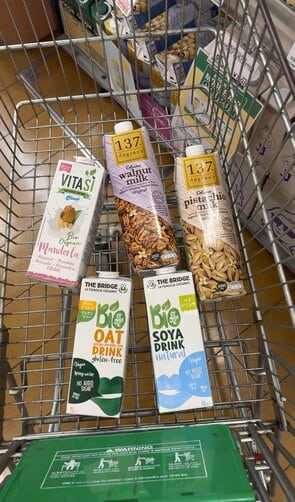


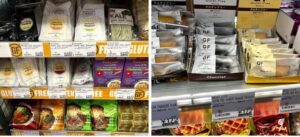
WHAT I DON’T RECOMMMEND …
1. I don’t recommend assuming that a product you always eat at home is the same in Japan. It might be prepared differently or stored differently.
For example : The fries at McDonalds in Australia are vegan (McDonalds doesn’t market them this way as they cannot guarantee that there will not be any cross contamination) but in Japan they are not as they are cooked in a blend of beef fat and palm oil.
Another example? Starbucks Japan often has limited edition soy milk lattes – if you can read the small print or ask – you will find that these almost always still contain dairy products. Just because it says “soy latte” – it doesn’t mean “ONLY soy.”
2. I don’t recommend just printing off “allergen cards” in English and Japanese and then expecting to be able to just show them at any restaurant and get what you need.
Getting straight to the point- carrying an epipen and some allergy cards is NOT ENOUGH in Japan. You will also need to have done research ahead of time for where you can eat AND I recommend staying at a big brand hotel like a Hilton or a Hyatt – you will also need to email them in advance so they understand exactly what you can and cannot consume.
While these cards can be of great help (and if you get them, I strongly recommend they come why it is important. “If I eat this I will need to go to the hospital” “Eating this ingredient could be life threatening” as I think it is important to stress the difference between a picky eater and someone with a very serious medical condition) the cards alone will not be of as much use as you may think.
In fact, because Japanese people are so polite and because the customer service standards are so high (ie. they want to make sure you have an incredible dining experience)- you may actually just be told that they are “unable to help you at this restaurant.”
So dining at a restaurant needs to involve:
-researching on websites, Facebook groups, asking for language support assistance from your hotel concierge or emailing ahead to ask what options are available
-a card to show the wait staff when ordering and then again before eating to double and triple check
If you wanted to also learn how to order something in Japan without a certain ingredient, I explain how to do so here but, once again, please check check and re-check before consuming.
I hope this helps any parents planning their upcoming Japan holiday. Let me know if there is anything I have missed (I’m at The Tokyo Chapter on instagram here.)
If you’ve enjoyed this blog post I think you’ll also like to read my tips on our family safety rules in Japan.
I also have a month by month guide on what to pack for Japan.

